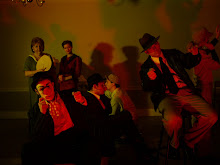The title character of The Dog in the Manger is the Countess Diana. Like the dog in Aesop’s fable she’ll not allow others to enjoy what she cannot. In the dog’s case it was food. In Diana’s it is the love of her servant, Teodoro. Her rank gives her power over him, which she enjoys, but this power would vanish if she wed him.
Diana’s decision to wed could reduce her to the status of property. It’s a serious dilemma when one considers that the heroines in Lope de Vega’s plays were often abandoned, raped or killed by their men. Lope highlighted marriage's contradictions in the play Justice without Revenge. When the heroine learns of her husband's affairs she has one of her own. He responds by slaughtering her to restore his "honor." Though frowned upon, a husband in 17th Century Spain was within his rights to murder a wife suspected of adultery, while women had no such legal recourse.
Diana is not slaughtered but she fits other patterns. A recurring figure in de Vega’s comedies was the mujer esquiva; a woman averse to marriage. Her plight is well explored in Women and Society in the Spanish Drama of the Golden Age by Melveena McKendrick (1974). Rather than explore the rational arguments for her singledom, de Vega would make it the result of vanity or pride that must be overcome by the hero. Still he allowed his women to battle against social convention before restoring the status quo. McKendrick concludes “By the standards of their day the Spanish dramatists of the Golden Age were enlightened and sympathetic men in their attitude to women. One cannot ask for more.” How much more should Diana ask of us in 2008? How could she win Teodoro and keep her self respect? de Vega himself provides an answer that we look forward to revealing this fall!
Paul G. Miller
Season Dramaturge
For more information on our production of The Dog in the Manger please visit http://www.redtapetheatre.org/.
Subscribe to:
Post Comments (Atom)


2 comments:
I'm very interested in auditioning for this play July 23rd and 24th... but do I have to schedule an audition time? And also, is the play available to read in advance?
Best of luck with the run!
To reserve an audition slot please e-mail a headshot and resume to info@redtapetheatre.com. Translations of the original de Vega script can be found in Chicago libraries, but our adaptation is still being workshopped and will not be available in advance.
Paul
Post a Comment